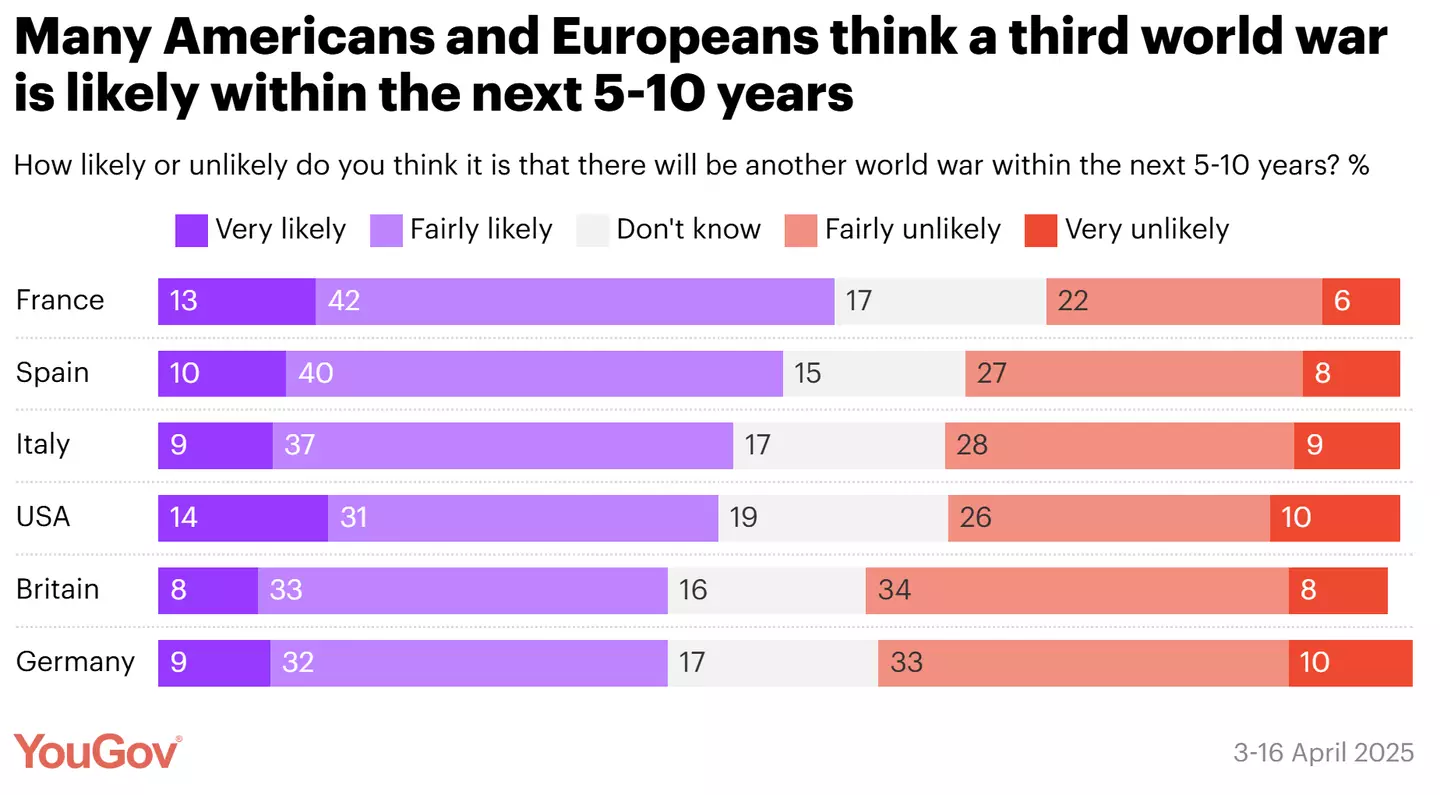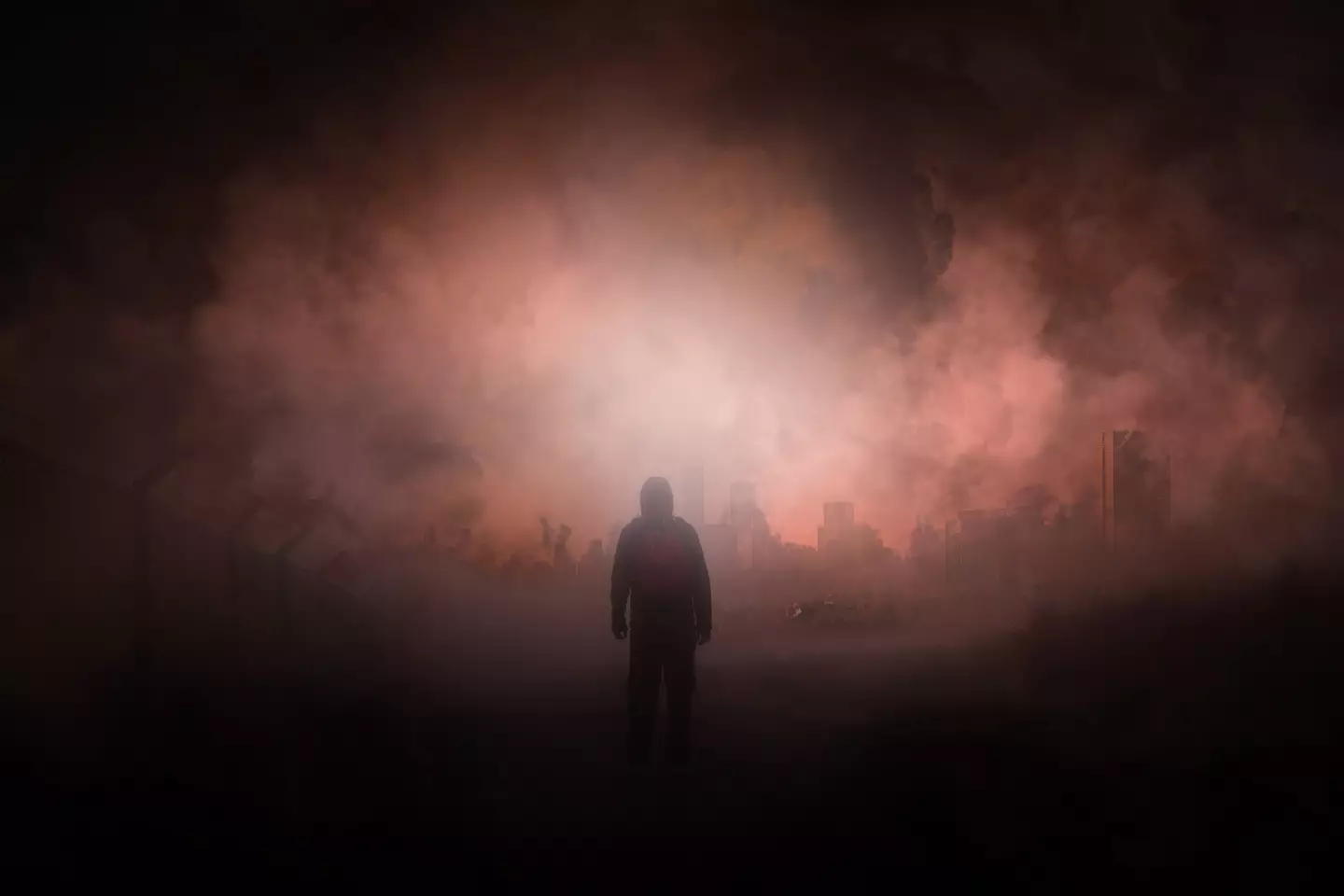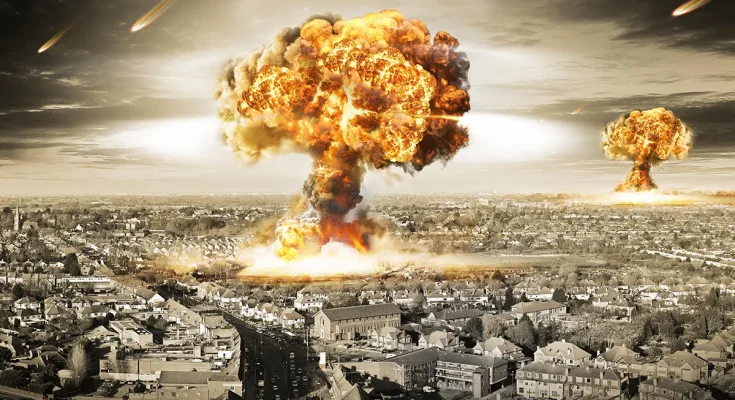A new poll reveals the shocking number of people in the US believe World War 3 is ‘likely’ within a decade.
Artificial intelligence is full of insights into what our near future could look like.
However, it can turn pretty worrying when you see the technology’s abilities to highlight the possible triggers, most dangerous countries, likely used weapons and probably most worrying, how long it would take for WW3 to lead to human extinction.
Whether you trust AI’s doomsday forecasts or the eerily accurate predictions of mystics like Baba Vanga and Nostradamus, a new poll suggests many people don’t actually think they’re that far off.
According to a recent YouGov poll, 45% of Americans and up to 55% of Europeans (Britain, France, Germany, Italy and Spain) think another global conflict is likely within the next five to 10 years.

When asked about potential causes of another global conflict, Russia was seen as the most probable between 72% and 82% of western Europeans and 69% of Americans. Islamic terrorism was listed as a close second.
Furthermore, the strong belief of a potential devastation to follow is apparent.
Around 68% to 76% of the respondents said they believe a third world war would involve nuclear weapons and between 57% and 73% said WWIII would lead to a greater loss of life than the duration of WWII. In fact, many (25% to 44%) believed it would kill most people in the world.
The results also showed that confidence in national defences varies widely. While 89% in the UK said they would expect their country to be involved in such a war, only 37% of Britons are confident in their military’s ability to protect them, compared to 71% of Americans.

Elsewhere in Europe, only 44% of the French and just 16% of Italians believe their armed forces could defend them effectively.
The poll also revealed a surprising level of concern about history repeating itself. Between 82% and 90% of Americans and western Europeans believe it’s important for schools to teach about World War 2, with 72% to 87% saying the events of the conflict and what led up to it are still relevant today.
Similarly, 31% to 52% across all six countries said they believed ‘crimes like those committed by the Nazi regime in Germany in the 1930s and 40s’ could likely happen in their own country, during their lifetimes. And nearly half of Germans (47%) feel that their country has been too ‘overly conscious of its Nazi past,’ holding it back from taking stronger action on more current issues.



